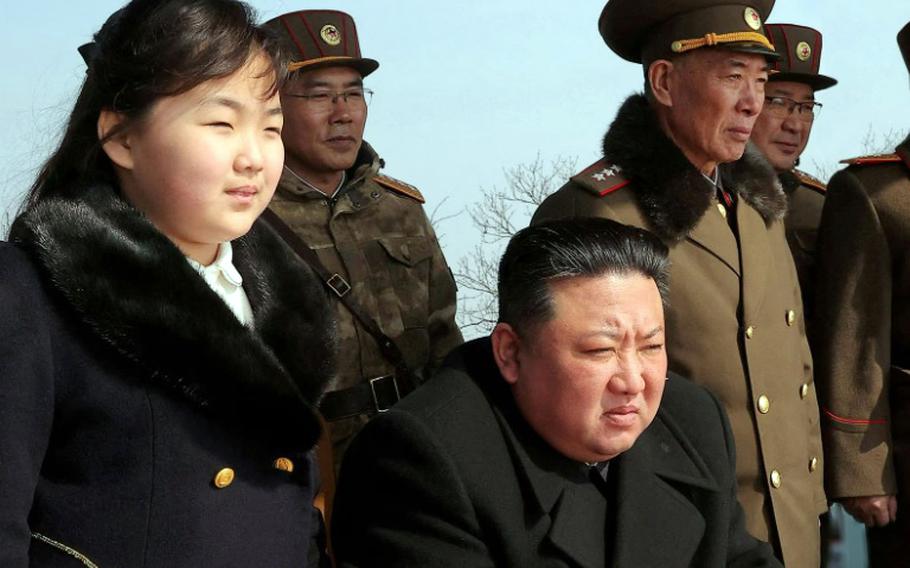
North Korean leader Kim Jong Un and his daughter observe a missile launch in this photo released by the state-run Korean Central News Agency on March 20, 2023. (KCNA)
The U.S. military “hasn’t seen any indications” of an imminent nuclear weapons test by North Korea, though it continues to monitor the communist regime’s testing facilities, a Pentagon spokeswoman said Monday.
“We continue to assess and work with our allies and partners in the region,” deputy press secretary Sabrina Singh told reporters in Washington, D.C. “Our goal and our allies' goal is the full denuclearization of the Korean Peninsula.”
For the past year, U.S. and South Korean intelligence officials have warned that North Korea has fully prepared to conduct its seventh nuclear test. The communist regime last detonated what it claimed was a hydrogen device on Sept. 3, 2017.
The director of the Defense Intelligence Agency, Army Lt. Gen. Scott Berrier, told reporters on March 22 that North Korea did not appear to be conducting a nuclear test soon.
“There are a bunch of different factors that play into [North Korean leader Kim Jong Un’s] decision calculus on that,” he said, according to Reuters. “And there are a bunch of things that we watch in terms of indications and warning. Those two haven't aligned.”
North Korea’s state-run Korean Central News Agency released images on March 28 of what it described as new Hwasan-31 nuclear warheads. The same report said the North had traveled a “rigorous and long road for possessing nuclear weapons."
North Korea has no plans to cease its nuclear program, according to U.S. and international agencies.
Kim “is continuing efforts to enhance North Korea’s nuclear and conventional capabilities targeting the United States and its allies,” according to the annual threat assessment released March 8 by Director of National Intelligence Avril Haines.
"Kim almost certainly views nuclear weapons and [intercontinental ballistic missiles] as the ultimate guarantor of his autocratic rule and has no intention of abandoning those programs, believing that over time he will gain international acceptance as a nuclear power,” the report states.
The Punggye-ri site, where North Korea previously tested its nuclear devices, “remains prepared to support a nuclear test, and we continue to see indications of activity …,” according to a March 6 statement by Rafael Grossi, director-general of the International Atomic Energy Agency.
“The reopening of the nuclear test site is deeply troubling,” Grossi said. “The conduct of a nuclear test would contravene U.N. Security Council resolutions and would be a cause for serious concern.”
The September 2017 test triggered a 6.3 magnitude earthquake, according to the U.S. Geological Survey. A study by the American Geophysical Union published in 2019 estimated the explosion yielded the equivalent of 250 kilotons of TNT, or roughly 17 times the size of the bomb dropped on Hiroshima, Japan, in 1945.